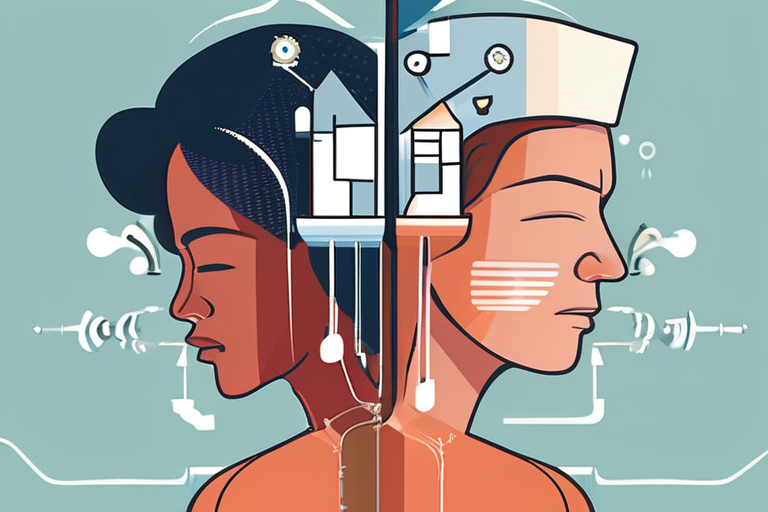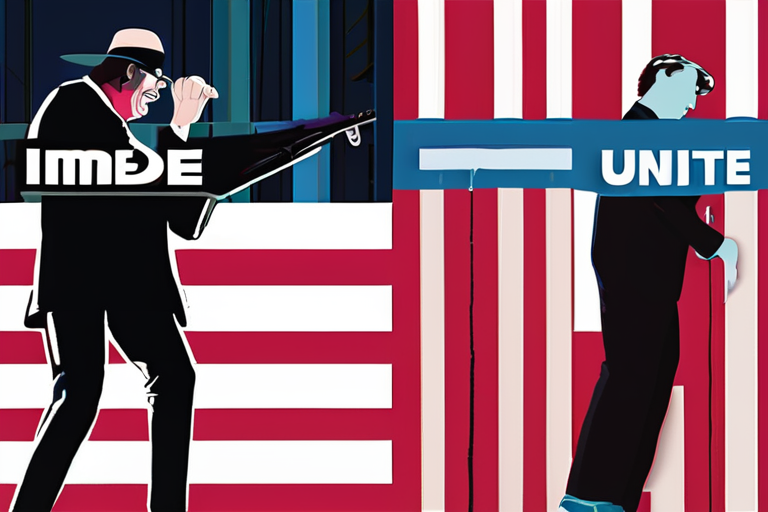The Double-Edged Sword of Empathy: How Compassion Can Harm and Heal
In a small coffee shop in Chicago, therapist Erica Steenberger sat across from a client who had been struggling with the weight of her own emotions. As she listened attentively to the woman's story, Steenberger felt a familiar sensation creeping up – the overwhelming urge to absorb her client's pain as if it were her own. It was a feeling she'd grown accustomed to over the years, but one that still left her breathless.
"I've been really thinking a lot lately about the darker side of being someone who practices empathy on purpose as a career all day, every day," Steenberger confessed in an interview with the Explain It to Me hotline. "There have been some really hard parts of it that I was not prepared for."
Steenberger's words echoed a growing concern among mental health professionals and everyday people alike: can empathy be too much of a good thing? In recent years, a trend has emerged within conservative Christian circles calling empathy into question, labeling it as a "sin" that can lead to emotional exhaustion and even spiritual compromise.
But what exactly is empathy, and why does it have such a complex relationship with our well-being? To understand the intricacies of this concept, we must delve into its cultural context and explore the diverse perspectives on empathy's impact.
The Rise of Empathy Fatigue
For many, empathy has long been seen as a cornerstone of compassion and kindness. We're taught to put ourselves in others' shoes, to imagine how they feel, and to respond with understanding and support. However, this emphasis on empathy has led to a phenomenon known as "empathy fatigue." Mental health professionals like Steenberger are particularly vulnerable to this condition, which can manifest as emotional exhaustion, burnout, and even compassion fatigue.
"It's not just about being empathetic; it's about being able to set boundaries," says Dr. Rachel Naomi Remen, a renowned psychiatrist who has written extensively on the topic of empathy. "When we're constantly taking in others' emotions without setting limits, we can become overwhelmed and lose our own sense of self."
The Dark Side of Empathy
But what happens when empathy is taken too far? In some conservative Christian circles, empathy has been rebranded as a form of emotional idolatry – a sin that can lead to spiritual compromise. Proponents argue that by prioritizing others' emotions over our own, we risk losing sight of God's sovereignty and our own spiritual well-being.
"This idea that empathy is a sin is not just about politics; it's about theology," explains Dr. Russell Moore, president of the Ethics & Religious Liberty Commission at the Southern Baptist Convention. "We're being told that if we care too much about others' feelings, we're somehow compromising our faith."
However, critics argue that this perspective oversimplifies the complexities of empathy and neglects its potential benefits.
The Healing Power of Empathy
While some may view empathy as a liability, many others see it as a vital component of human connection. In fact, research has shown that empathy can have a profound impact on our mental and physical health, reducing stress, anxiety, and even inflammation.
For those who have experienced trauma or marginalization, empathy can be a lifeline – a reminder that they are not alone in their struggles. "Empathy is not just about understanding; it's about validation," says Dr. Thema Bryant-Davis, a psychologist specializing in trauma-informed care. "When we're met with empathy and compassion, we feel seen, heard, and valued."
A Nuanced Understanding of Empathy
As we navigate the complexities of empathy, it's essential to recognize that this concept is not one-size-fits-all. What works for one person may not work for another, and what constitutes healthy empathy can vary depending on cultural context and individual experiences.
Ultimately, Steenberger's words offer a poignant reminder: "Empathy is not about taking on others' emotions; it's about being present with them in their pain." By embracing this nuanced understanding of empathy, we may just find that compassion becomes less overwhelming – and more transformative.
*Based on reporting by Vox.*



 Hoppi
Hoppi

 Hoppi
Hoppi

 Hoppi
Hoppi

 Hoppi
Hoppi

 Hoppi
Hoppi

 Hoppi
Hoppi











